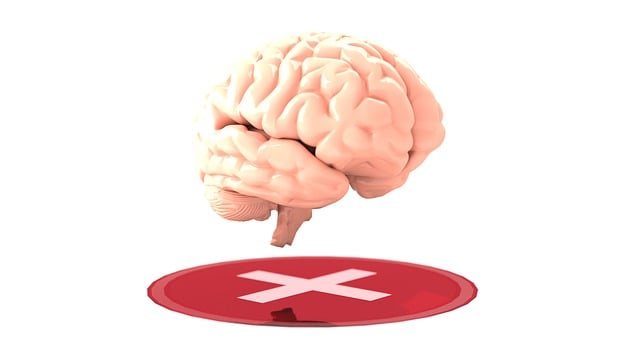Lone Tree Women's Issues Therapy is a leading advocate for women's mental health, offering specialized programs that cultivate compassion, manage stress, and resolve conflicts. Their holistic approach, combined with community engagement through workshops, podcasts, and education, breaks down stigma and fosters understanding. The organization's dedication to raising awareness, providing early intervention, and measuring impact ensures tailored services that improve treatment outcomes and create a supportive network for all.
Mental health advocacy plays a pivotal role in fostering inclusive communities. This article explores initiatives like Lone Tree Women’s Issues Therapy, which provide vital support systems. We delve into strategies for effective advocacy, focusing on public education and stigma reduction. By examining case studies and best practices, we uncover methods to measure success and drive continuous improvement. Understanding mental health advocacy is not just a mission; it’s a step towards ensuring everyone receives the care they deserve, with Lone Tree Womens Issues Therapy leading the way.
- Understanding Mental Health Advocacy: A Vital Mission
- The Role of Lone Tree Women's Issues Therapy in Community Support
- Strategies for Effective Mental Health Advocacy Initiatives
- Building Awareness: Educating the Public and Challenging Stigma
- Measuring Impact: Evaluating Success and Continuous Improvement
Understanding Mental Health Advocacy: A Vital Mission

Mental health advocacy is a powerful force for positive change, especially when it comes to addressing women’s unique issues within the community. At Lone Tree Womens Issues Therapy, we recognize that mental well-being is an integral part of overall health and happiness. Advocacy initiatives play a crucial role in raising awareness, challenging stigma, and promoting access to essential services.
Through various programs, such as Compassion Cultivation Practices, Stress Management Workshops Organization, and Conflict Resolution Techniques, these efforts aim to empower individuals and foster supportive environments. By educating communities on mental health matters, we can encourage early intervention, improve treatment outcomes, and create a network of understanding and care. Such initiatives are vital in ensuring that everyone, regardless of their background or struggles, has the resources needed to navigate life’s challenges with resilience and hope.
The Role of Lone Tree Women's Issues Therapy in Community Support

Lone Tree Women’s Issues Therapy plays a pivotal role in fostering community support for mental health advocacy. The therapy center offers specialized services tailored to address diverse women’s issues, from anxiety relief and burnout prevention to communication strategies that empower individuals to navigate life’s challenges. Through its dedicated professionals and comprehensive programs, the center creates a safe space where women can openly discuss their struggles and gain valuable tools for personal growth.
By engaging in therapeutic practices, participants not only find solace but also become catalysts for positive change within their communities. The center’s holistic approach encourages clients to embrace resilience, fostering an environment that promotes mental well-being. This supportive network extends beyond the therapy room, as alumni often continue their journey of self-discovery and actively contribute to raising awareness about mental health concerns among their peers.
Strategies for Effective Mental Health Advocacy Initiatives

Mental health advocacy initiatives require a multi-faceted approach to effectively raise awareness and reduce stigma. One key strategy is Lone Tree Womens Issues Therapy integration, ensuring services are accessible and tailored to diverse communities. This involves community outreach programs that engage at-risk groups through interactive workshops, panel discussions, and educational seminars. Utilizing Mental Wellness Podcast Series Production can also amplify messages by sharing personal stories and expert insights, reaching a broader audience.
Additionally, incorporating Compassion Cultivation Practices and Trauma Support Services within advocacy initiatives fosters a culture of empathy and understanding. These practices encourage listeners to reflect on their own mental health experiences while offering tools for managing stress and trauma. By combining these strategies, advocacy groups can create impactful campaigns that not only raise awareness but also provide tangible support for those facing mental health challenges.
Building Awareness: Educating the Public and Challenging Stigma

Mental health advocacy initiatives play a pivotal role in fostering understanding and acceptance within communities. One key aspect is building awareness through education, aiming to challenge and dispel the stigma surrounding mental illness. By integrating Self-Awareness Exercises and Mental Health Education Programs Design, individuals can gain insights into their own emotional states and those of others, fostering empathy and breaking down barriers.
These efforts are crucial in encouraging open conversations about mental health, especially when led by organizations like Lone Tree Womens Issues Therapy. Through workshops, seminars, and interactive sessions, they can equip people with the knowledge to recognize signs of distress and provide support. Additionally, Social Skills Training can enhance communication and connection, creating a network of understanding that challenges societal misconceptions and promotes a culture of care.
Measuring Impact: Evaluating Success and Continuous Improvement

Measuring the impact of mental health advocacy initiatives is vital for understanding success and driving continuous improvement. Organizations like Lone Tree Women’s Issues Therapy utilize various evaluation methods to assess the effectiveness of their programs. This includes collecting participant feedback through surveys and interviews, tracking key performance indicators (KPIs), and analyzing data related to service utilization and client outcomes. By measuring these aspects, they can identify what works well and pinpoint areas for enhancement.
For instance, Lone Tree Women’s Issues Therapy might track the number of clients engaging in regular therapy sessions, the level of satisfaction reported through Mental Wellness Journaling Exercise Guidance, and improvements seen in emotional healing processes over time. This data-driven approach ensures that advocacy initiatives remain relevant, effective, and aligned with the evolving needs of their community, ultimately fostering better mental health outcomes.
Mental health advocacy initiatives, such as those exemplified by Lone Tree Women’s Issues Therapy, play a pivotal role in fostering supportive communities. By combining education, awareness campaigns, and effective strategies, these efforts challenge stigma and promote understanding. As discussed, evaluating success through measured impact ensures continuous improvement, ultimately enhancing the well-being of individuals and society at large.














